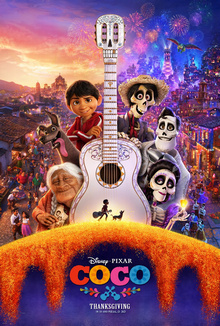
María Ofelia Medina Torres, more commonly known by her stage name Ofelia Medina, is a Mexican actress, singer and screenwriter of Mexican films. She was married to film director Alex Philips Jr. and actor Pedro Armendáriz Jr.

María Cecilia Suárez de Garay is a Mexican actress and activist working with the United Nations and European Union campaigning against femicide and violence against women. She has starred in film, television, and theater across the United States, Mexico, and Spain.
The Golden Ariel is an award that “symbolizes the work of excellence that a member of the film industry has achieved throughout their career and that has contributed to the development and growth of Mexican cinematography”. The Golden Ariel is the highest award given to an individual or institution in the Mexican film industry by the Mexican Academy of Cinematographic Arts and Sciences. It has been awarded annually since 1946 as part of the Ariel Awards and is also given to films that win Best Picture. As of 2020 ceremony, the current recipients are composer Lucía Álvarez and actress María Rojo.

Nadie hablará de nosotras cuando hayamos muerto is an awarded 1995 Spanish noir drama film written and directed by Agustín Díaz Yanes.
The Ariel Award for Best Actress is an award presented by the Academia Mexicana de Artes y Ciencias Cinematográficas (AMACC) in Mexico. It is given in honor of an actress who has delivered an outstanding performance in a leading role while working within the Mexican film industry. In 1947, the 1st and 2nd Ariel Awards were held, with Dolores del Río and María Félix winning for the films Las Abandonadas and Enamorada, respectively. With the exception of the years 1959 to 1971, when the Ariel Awards were suspended, the award has been given annually. Nominees and winners are determined by a committee formed every year consisting of academy members, previous winners and individuals with at least two Ariel nominations; the committee members submit their votes through the official AMACC website.

Josefina Echánove was a Mexican film, television and stage actress. She received two Ariel Award nominations for her acting roles.
The Queen of the Night is a 1994 Mexican drama film directed by Arturo Ripstein. It was entered into the 1994 Cannes Film Festival.

Anita Blanch was a Spanish-born, Mexican actress, who worked in the Golden Age of Mexican cinema. She was nominated for an Ariel Award from the Mexican Academy of Film three times and won the Best Supporting Actress Award from Diosa de Plata in 1963.

Anabel Gutiérrez Aicua was a Mexican actress and comedian. Her most memorable works included her participation in the film School for Tramps (1955), as well as her appearances on the program Chespirito (1970), playing the character of Doña Espotaverderona in some sketches.

Coco is a 2017 American animated fantasy comedy-drama film produced by Pixar Animation Studios and released by Walt Disney Pictures. It was directed by Lee Unkrich, co-directed by Adrian Molina, and produced by Darla K. Anderson, from a screenplay written by Molina and Matthew Aldrich, and a story by Unkrich, Molina, Aldrich, and Jason Katz, based on an original idea conceived by Unkrich. The film stars the voices of Anthony Gonzalez, Gael García Bernal, Benjamin Bratt, Alanna Ubach, Renée Victor, Ana Ofelia Murguía, and Edward James Olmos. The story follows a 12-year-old boy named Miguel (Gonzalez) who is accidentally transported to the Land of the Dead, where he seeks the help of his deceased musician great-great-grandfather to return him to his family and reverse their ban on music.

Los Motivos de Luz is a 1985 Mexican drama film, directed by Felipe Cazals. The film stars Patricia Reyes Spíndola, as Luz, a woman accused of murdering her four children, after being accused by her husband and her mother-in-law. Los Motivos de Luz was written by Xavier Robles based on the real case of Elvia Luz Cruz. The film received two Ariel Awards in 1986, for Best Actress (Spindola) and Best Supporting Actress (Murguía).

Ana Rujas is a Spanish model turned actress.
The Ariel Award for Best Supporting Actress is an award presented by the Academia Mexicana de Artes y Ciencias Cinematográficas (AMACC) in Mexico. It is given in honor of an actor who has delivered an outstanding performance in a supporting role while working within the Mexican film industry. In 1947, the 1st and 2nd Ariel Awards were held, with Lilia Michel winning in both ceremonies for the films Un Beso en la Noche and Vértigo, respectively. With the exception of the years 1959 to 1971, when the Ariel Awards were suspended, the award has been given annually. Nominees and winners are determined by a committee formed every year consisting of academy members, previous winners and individuals with at least two Ariel nominations; the committee members submit their votes through the official AMACC website.

Adriana Paz is a Mexican actress and dancer. She began her artistic career in Spain, shooting commercials and acting in a play. She was recognized for her role as Toña in the Mexican film Rudo y Cursi (2009) with a nomination for the Ariel Award for Best Supporting Actress. She garnered critical praise starring as Miranda in Las Horas Muertas (2013), for which she was awarded Best Actress at the Morelia International Film Festival. She subsequently starred in the TV series Sucedió en Un Día (2010), Capadocia (2010), El Encanto del Aguila (2011), Dios, Inc. (2016), and Vis a vis (2018-2019).

Sofía Espinosa Carrasco is a Mexican actress, writer and director. She began her artistic preparation at the National Conservatory of Music, and followed with studies at Casazul in Mexico, Claudio Tolcachir's school in Argentina, the Stella Adler Studio in New York City, and the Royal Academy of Dramatic Art in London. She received recognition for her role of Mati in the Mexican film La Niña en la Piedra (2006), for which she was nominated for an Ariel Award for Best Actress. She subsequently starred in the TV series Capadocia (2010) and Bienvenida Realidad (2011).

La Víspera is a 1982 Mexican political drama film, directed by Alejandro Pelayo. The film received four Ariel Awards in 1983: Best Actor, Best Supporting Actor, Best Original Screenplay and Best First Feature Film. The film plot recount 24 hours before engineer Manuel Miranda takes office as Secretary of State in Mexico.
"Remember Me" is a song from the 2017 animated Disney/ Pixar film Coco, written by Robert Lopez and Kristen Anderson-Lopez. The song is performed variously within the film by Benjamin Bratt, Gael García Bernal, Anthony Gonzalez, and Ana Ofelia Murguía. Miguel and Natalia Lafourcade perform a pop version of the song that is featured in the film's end credits. Carlos Rivera recorded a cover version of the song, titled "Recuérdame" for the film's Spanish-language soundtrack album. It won Best Original Song at the 90th Academy Awards in 2018. The song was performed live by Gael García Bernal and Federico Ramos on guitar.
Events in 1933 in animation.
This article lists events occurring in Mexico during 2023. It lists the most important political leaders during the year at both federal and state levels and will include a brief year-end summary of major social and economic issues. Cultural events, including major sporting events, are also listed.












